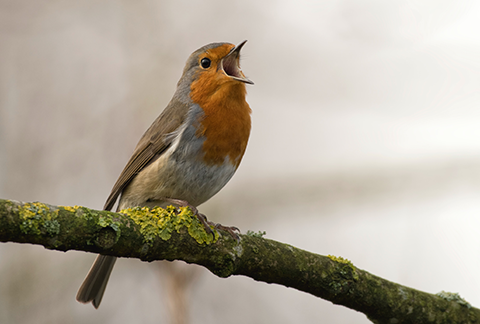We are all connected: exploring environmental science careers
I love been outside. I like the sound of stepping on crispy fall leaves and the feeling of wind blowing through my curls. Nature is relaxing and real, especially these days.
Today is World Environment Day. For this week's column, I'm going to focus on environmental science careers. The 2020 theme for the observance is biodiversity (the variety of living organisms on Earth), and this year the United Nations Environment Programme declared it a “Time for Nature.”

Environmental science is the perfect field for scientists who are passionate about all things nature. It is an interdisciplinary field that connects physical and life sciences. Environmental scientists use their strong foundation of biology and chemistry to solve environmental problems, such as deforestation and air, land and water pollution. They also must be able to explain to the public why taking care of our environment matters in the long run. This takes patience, effort and time.
In most cases, a bachelor’s degree in biology, chemistry or environmental science is enough. If you plan to go deeper in the field, want to conduct research or otherwise want to become an expert, a graduate degree is recommended.
According to the Office of Energy Efficiency & Renewable Energy, environmental scientists should have.
-
Analytical skills: They need to understand how to analyze data and environmental trends.
-
Problem-solving skills: They need to find efficient solutions and make economical recommendations.
-
Communication skills: They need to communicate with others effectively.
Environmental scientists can work in many settings:
-
Education: They work in formal and informal settings, such as museums, wildlife centers, parks, K–12 classrooms and universities.
-
Industry: They work for businesses specializing in specific areas, such as water, climate, health and food, or any other area that affects living organisms.
-
Nonprofit/advocacy: They work for mission-driven organizations that support the greater good (for example, environmental policy, education or conservation).
-
Government: They work at the local, regional, state and national levels on regulations, remediation, monitoring and enforcement.
How to prepare for an environmental science career
Find your cause: What area of environmental science are you passionate about? How can we keep the water clean in a small community? What can we do about climate change? How can we reduce air pollution? These are just a few questions that environmental scientists consider every day.
Communicate your “why”: Environmental scientists meet with people across sectors, including nonprofits, government and academia, so they have to be well versed in communicating their message to all groups. Also, your “why” is important when it comes to proposals, grantwriting and speaking at conferences.
Expand your knowledge: Your skills, experience and goals will determine what your next step will be. If you don’t have a specific area of interest, you can become a certified environmental specialist. Once you gain more field experience, you can apply for one of the first-time certifications for environmental professionals relevant to the work you wish to do. Also, Coursera offers an online sustainability and development MasterTrack certificate.
Volunteer: Volunteering is the No. 1 way to take action now! Contact nonprofits, community groups and wildlife/conservation centers in your area to find out ways to give back. Volunteering will help you build your skills, expand your network and explore environmental science career options.
Get connected: Follow the Twitter hashtags #ForNature and #ExplorersAtHome to join the community of environmentalists and conservationists.
#BlackBirdersWeek
Earlier this week, Twitter was flooded with photos of black birdwatchers and the birds they have spotted.
#BlackBirdersWeek was initiated by Corina Newsome, a biology graduate student at Georgia Southern University, following a racist incident in New York's Central Park, where a white woman called the police on a black birder who merely asked her to leash her dog according to rules for that particular section of the park. (See this interview with Newsome by the Audubon Society.)
The hashtag #BlackInNature, meanwhile, was used to show black nature enthusiasts of all ages doing their thing out in the world.
Both hashtags highlight that the outdoors are not always safe for black people and that black nature enthusiasts are denied both the freedom of movement and benefit of the doubt enjoyed by white nature enthusiasts.
Enjoy reading ASBMB Today?
Become a member to receive the print edition four times a year and the digital edition monthly.
Learn moreFeatured jobs
from the ASBMB career center
Get the latest from ASBMB Today
Enter your email address, and we’ll send you a weekly email with recent articles, interviews and more.
Latest in Careers
Careers highlights or most popular articles

From humble beginnings to unlocking lysosomal secrets
Monther Abu–Remaileh will receive the ASBMB’s 2026 Walter A. Shaw Young Investigator Award in Lipid Research at the ASBMB Annual Meeting, March 7-10 in Washington, D.C.

Chemistry meets biology to thwart parasites
Margaret Phillips will receive the Alice and C. C. Wang Award in Molecular Parasitology at the ASBMB Annual Meeting, March 7-10 in Washington, D.C.

Decoding how bacteria flip host’s molecular switches
Kim Orth will receive the Earl and Thressa Stadtman Distinguished Scientists Award at the ASBMB Annual Meeting, March 7–10, just outside of Washington, D.C.

Defining JNKs: Targets for drug discovery
Roger Davis will receive the Bert and Natalie Vallee Award in Biomedical Science at the ASBMB Annual Meeting, March 7–10, just outside of Washington, D.C.

Upcoming opportunities
No matter where you are in your career and what future path you aspire to, everyone needs leadership skills. Join ASBMB for practical strategies for building and practicing leadership skills.

Close out ASBMB 2026 with a bang
The closing reception of the 2026 ASBMB Annual Meeting will be held at the Torpedo Factory Art Center in Alexandra, Virginia.


